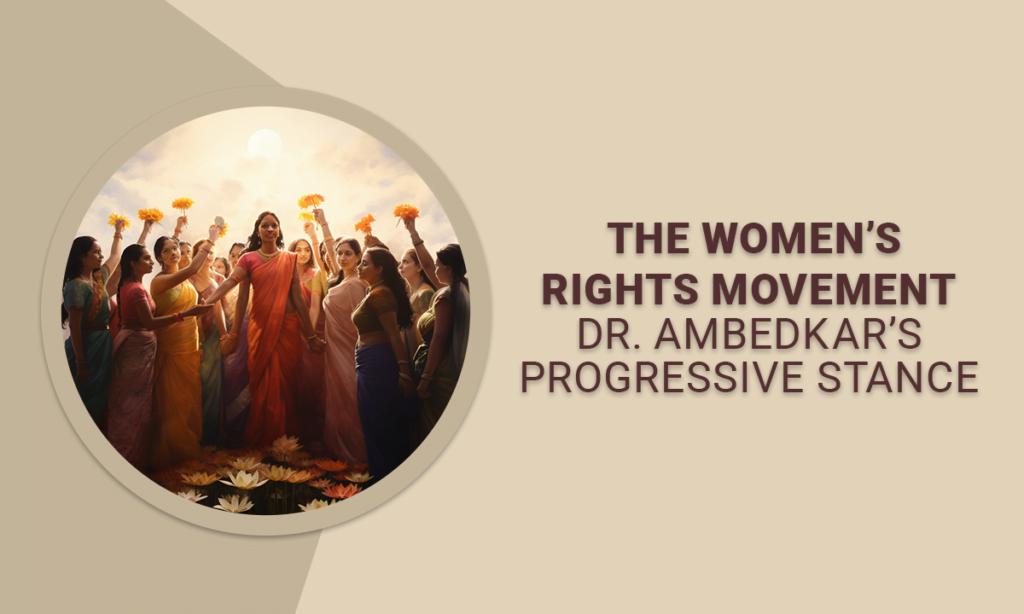Introduction
The Women’s Rights Movement has been a significant force in reshaping societies and challenging long-standing gender inequalities around the world. One often overlooked figure in this movement is Dr. B.R. Ambedkar, a pioneering Indian social reformer, jurist, and the chief architect of the Indian Constitution. Dr. Ambedkar’s progressive stance on women’s rights was not only ahead of its time but also instrumental in shaping India’s approach to gender equality.
This article explores the life and work of Dr. Ambedkar, highlighting his visionary contributions to the Women’s Rights Movement.
Early Life and Influences
Born on April 14, 1891, in Mhow, Madhya Pradesh, Bhimrao Ramji Ambedkar faced immense discrimination and social injustice as a member of the marginalised Dalit community in India. His personal experiences with caste-based discrimination deeply ignited his passion for social reform.
Ambedkar’s education and exposure to Western philosophy, especially the ideals of liberty, equality, and fraternity, significantly shaped his thinking. These experiences laid the foundation for his progressive stance on women’s rights.
Understanding Gender Inequality
Dr. Ambedkar recognised that gender inequality was inextricably linked to social inequality as a whole. He believed that true social reform could only be achieved by addressing both simultaneously. His seminal work, “The Annihilation of Caste,” published in 1936, eloquently outlined the need to abolish the deeply entrenched caste system that perpetuated gender discrimination. He argued that caste hierarchy was a significant barrier to women’s rights and freedom, as women from the lower castes were particularly vulnerable to exploitation.
Women’s Education
Education was one of the pillars of Dr. Ambedkar’s women’s rights. He firmly believed that educating women was essential for their empowerment and for breaking the cycle of discrimination. In this regard, Ambedkar advocated for the construction of schools for Dalit girls and women. As a way of uplifting society as a whole, he also stressed the importance of education for women from all communities.
Legal Reforms
Dr. Ambedkar was instrumental in driving legal reforms to safeguard women’s rights. He recognised the urgent need to address issues such as child marriage, dowry, and unequal inheritance rights that plagued Indian society. To this end, he played a pivotal role in framing the Hindu Code Bill, which aimed to codify and reform Hindu personal laws.
The Hindu Code Bill, a comprehensive legislation dealing with issues of marriage, divorce, succession, and adoption among Hindus, was a radical step towards gender equality. Ambedkar’s tireless efforts to push this bill through the Indian Parliament were met with staunch opposition from conservative forces. Still, his unwavering commitment to women’s rights prevailed, and significant provisions of the bill were eventually passed.
Political Representation
Dr. Ambedkar believed that women should have a meaningful role in shaping the destiny of the nation. In his vision for an inclusive and democratic society, he emphasised the importance of women’s participation in politics.
Ambedkar’s contributions to women’s political representation are evident in the Indian Constitution, which grants women equal political rights. The constitution guarantees women the right to vote and stand for election, ensuring that women have a voice in the country’s governance. Therefore, many women occupy prominent positions in Indian politics, making this change a significant development for Indian democracy.
Social Justice and Gender Equality
Dr. Ambedkar recognised that gender discrimination was a manifestation of broader social injustices and inequalities. His writings and speeches consistently underscored the need for a feminist perspective within the broader social justice movement. He challenged traditional patriarchal norms and practices and called for a reevaluation of gender roles and relationships within society. His ideas on gender equality continue to inspire activists and scholars working towards a more equitable world.
Final Words
In contemporary India, Dr. Ambedkar’s legacy remains as relevant as ever. Despite the progress made, gender-based discrimination and violence persist. Ambedkar’s teachings remind us that the fight for women’s rights is inseparable from the broader struggle for social justice. His emphasis on education, legal reforms, and political representation for women serves as a blueprint for addressing the challenges that women continue to face in India and around the world.
People Also Read: Empowering Nations: Why Educating the Girl Child Benefits Society as a Whole
